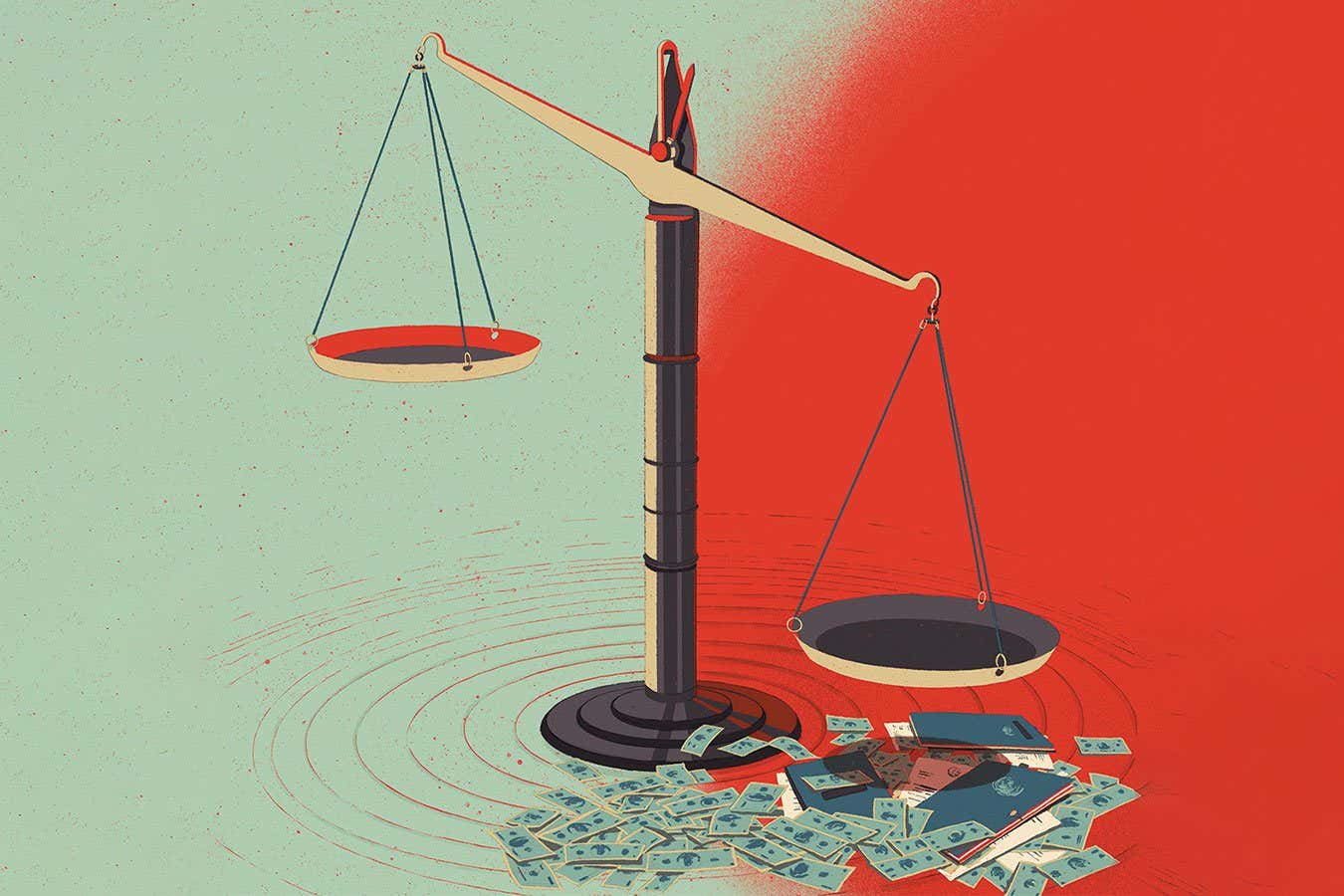

People transgress. They get punished. They start cooperating. This basic intuition that people are rational, and so respond to punishment by changing their behaviour, lies at the heart of Western legal systems, economic theories of crime and evolutionary theories of cooperation. The only problem is that decades of research suggest that punishment doesn’t actually seem to work.
Analyses of previous studies consistently find that harsher penalties, like “three strikes and you’re out” laws, don’t reliably reduce crime. In its report on the death penalty, the US National Research Council could draw no conclusion about its efficacy. Meanwhile, the US, home to one of the world’s most punitive criminal justice systems, has high rates of incarceration and recidivism.
These real-world findings are at odds with much experimental literature. In a famous study, economists Ernst Fehr and Simon Gächter created a game in which players were given money and the option to contribute to a shared pool. The pool was multiplied and redistributed to the players, meaning that everyone benefited most when everyone contributed. But each individual was better off not contributing while others did. When participants couldn’t punish free riders, cooperation declined – but when punishment was introduced, contributions to the pool rebounded dramatically.
So what is happening in the real world that experiments aren’t capturing? We explored this puzzle in a recent paper in PNAS. We began with the observation that, in society, people with a punishment role often have incentives that undermine their legitimacy and erode our trust in them. In Ferguson, Missouri, officials used fines to fund city services, disproportionately targeting Black residents. Across the US, billions of dollars have been seized through civil asset forfeiture, which allows police to confiscate property from those suspected of involvement in a crime.
We hypothesised that these kinds of self-interested motives for punishment can break down cooperation because they muddy its moral signal. Unlike other animals, humans possess “theory of mind” – we are hyper-attuned to the intentions and motivations of others. Punishment sends a message of disapproval that demands behavioural change. But that signal works only if we believe the punisher’s motives are just. Humans are social beings who ask, “Why are you doing this to us?” If the answer seems self-serving, punishment loses its power to foster cooperation.
To test this idea, we ran a series of experiments using the same games that had shown how punishment boosts cooperation. In these games, one player (the dictator) decides whether to share money with another (the receiver), while a third (the punisher) can choose to remove money from the dictator. But we added a twist: we paid the punishers. As is the case if a police department relies on ticket quotas to boost revenue, our punishers received a financial bonus every time they punished the dictator. And when we did that, the classic effect flipped – instead of boosting cooperation, punishment undermined it. People were less willing to cooperate because their trust in punishers declined.
Our findings suggest we need to rethink crime control. When punishers are seen as self-interested, punishment breeds distrust and undermines the cooperation it is meant to uphold. If we want to build safer, more collaborative communities, we need to dismantle practices that compromise the moral message of punishment. That includes ending policies like speeding-ticket quotas and for-profit incarceration – practices that signal punishment is driven by profit, not justice.
Raihan Alam and Tage Rai are at the Rady School of Management at the University of California, San Diego
Topics:



